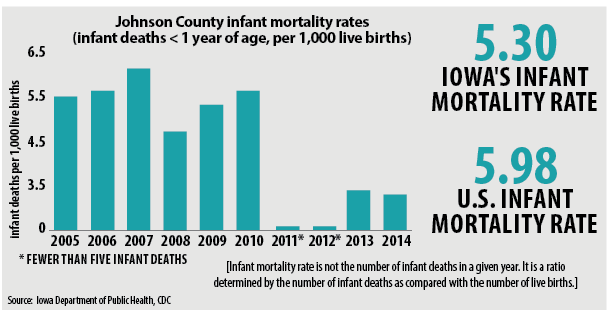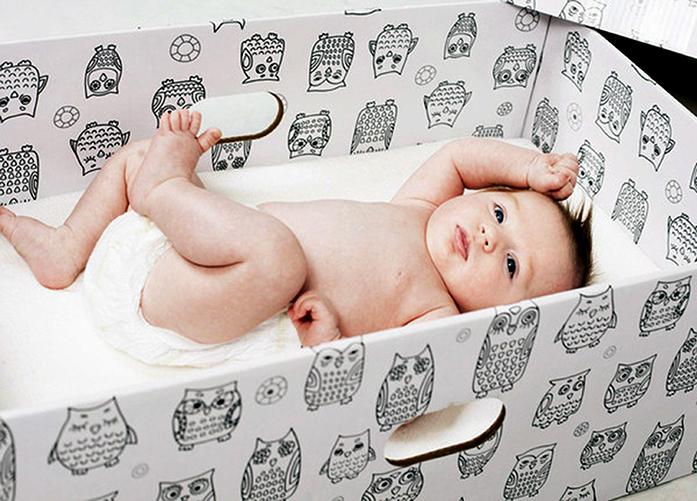Following the Finnish lead, Johnson County agencies are offering “baby boxes” to residents in need and by doing so, possibly saving lives.
Each year, Early Childhood Iowa, previously known as Johnson County Empowerment, receives an $11,000 grant from the state to invest in whatever local officials feel fit. Starting in January of this year, baby boxes have been given to new parents as an alternative to cribs.
“For heavy sleepers, it’s not uncommon for a parent to roll onto a child,” said Laurie Nash, the group’s early childhood specialist. “With the baby box, we can make sure the baby is in a really safe sleep environment.”
Baby boxes aren’t just empty boxes, they contain various supplies for newborn infants and their parents as well.
The county put together two teams to assess death rates in 2010, with one designated for children and the other for ad ults. Officials said as a result of child-safety efforts such as the baby box and parent education, those numbers are at all all-time low.
ults. Officials said as a result of child-safety efforts such as the baby box and parent education, those numbers are at all all-time low.
Kate Bengston, an investigator for the Johnson County Medical Examiner’ Office, said infant deaths have decreased statewide from 176 to 144 from 2014 to 2015. In Johnson County, numbers have dropped from 51 to 39 during the same years.
“We’ve made the education a priority,” Bengston said. “Bringing awareness to the community is making a big difference.”
Nash said the county has spent $1,200 on the boxes so far, and the grant is also being used to purchase car seats, something local agencies have been doing informally for years. Nash said one volunteer has even been buying cribs at garage sales out of pocket to donate.
“By having funding, it has been a way to formalize the process,” she said.
Several factors can go into a county’s death rate, but Nash said she believes the recent infant safety efforts may have contributed.
Ally Hanton helps run the teen-parent program at United Action for Youth, which offers home visits to parents under the age of 23.
Aside from offering parents a baby box if there’s a need, representatives educate young families on child development, care, and education.
“I think it’s been well-received,” Hanton said. “Generally, when you give families information they need and educate them, they will comply with what’s recommended.”
She noted that the safety is nice for parents and even better for the kids. The baby box can also be useful if a family doesn’t have an extra room to put a crib, and it keeps the parents closer to children during the night.
“I think both [baby boxes and car seats] are in high demand,” Hanton said. “They’re not cheap. When you’re somebody who doesn’t have access to a lot of income, or the income you do have is being used for rent, a car seat or crib becomes kind of a luxury that you don’t have.”
With the grant money, Early Childhood Iowa is working with agencies that actually distribute the products and educate families based on a checklist the University of Iowa College of Nursing and the groups put together.
Nash said the grant has been beneficial because it has allowed for Early Childhood Iowa to work with agencies it may not have been able to otherwise, allowing for further collaboration on future community projects.
Nash said dollars and equipment have been allocated for baby boxes and car seats until June 30, and the group’s board will decide by July 1 what the resources will be used for in the upcoming fiscal year.
“I think [the boxes] are making the county safer,” Hanton said. “I think everything needs to start with small steps, and this is a good place to start.”



